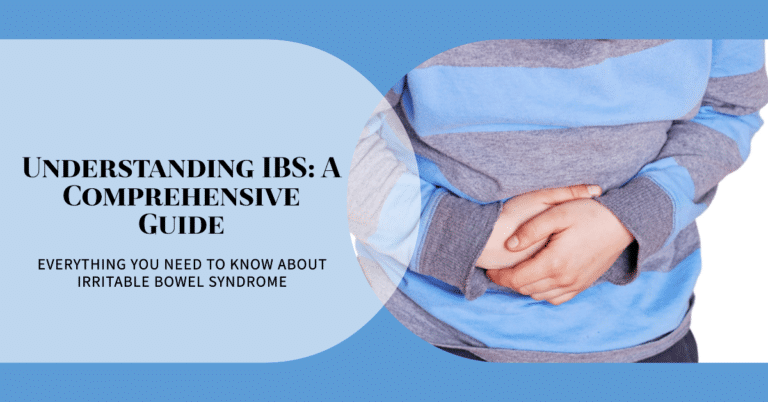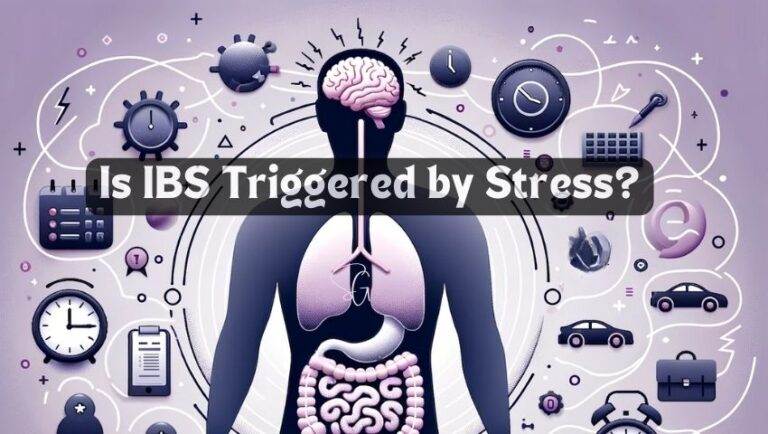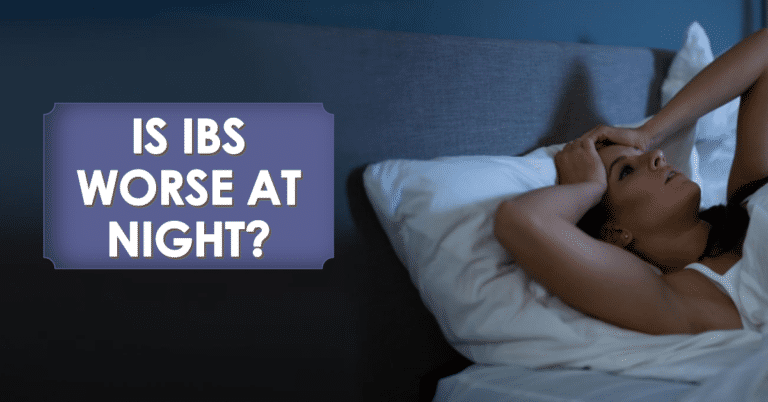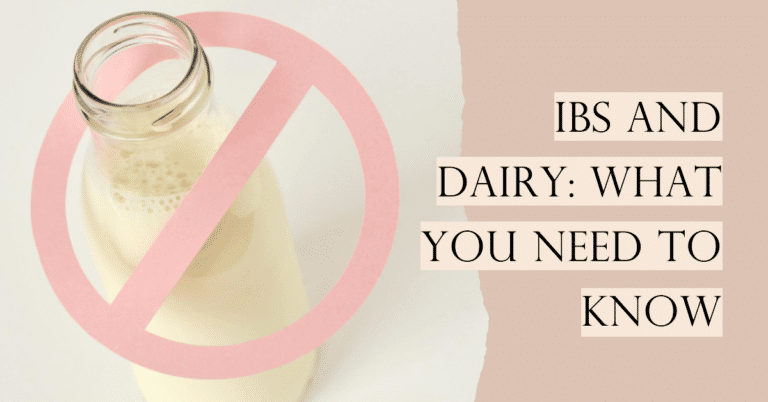Why is IBS So Painful? – Understanding the Agony Within
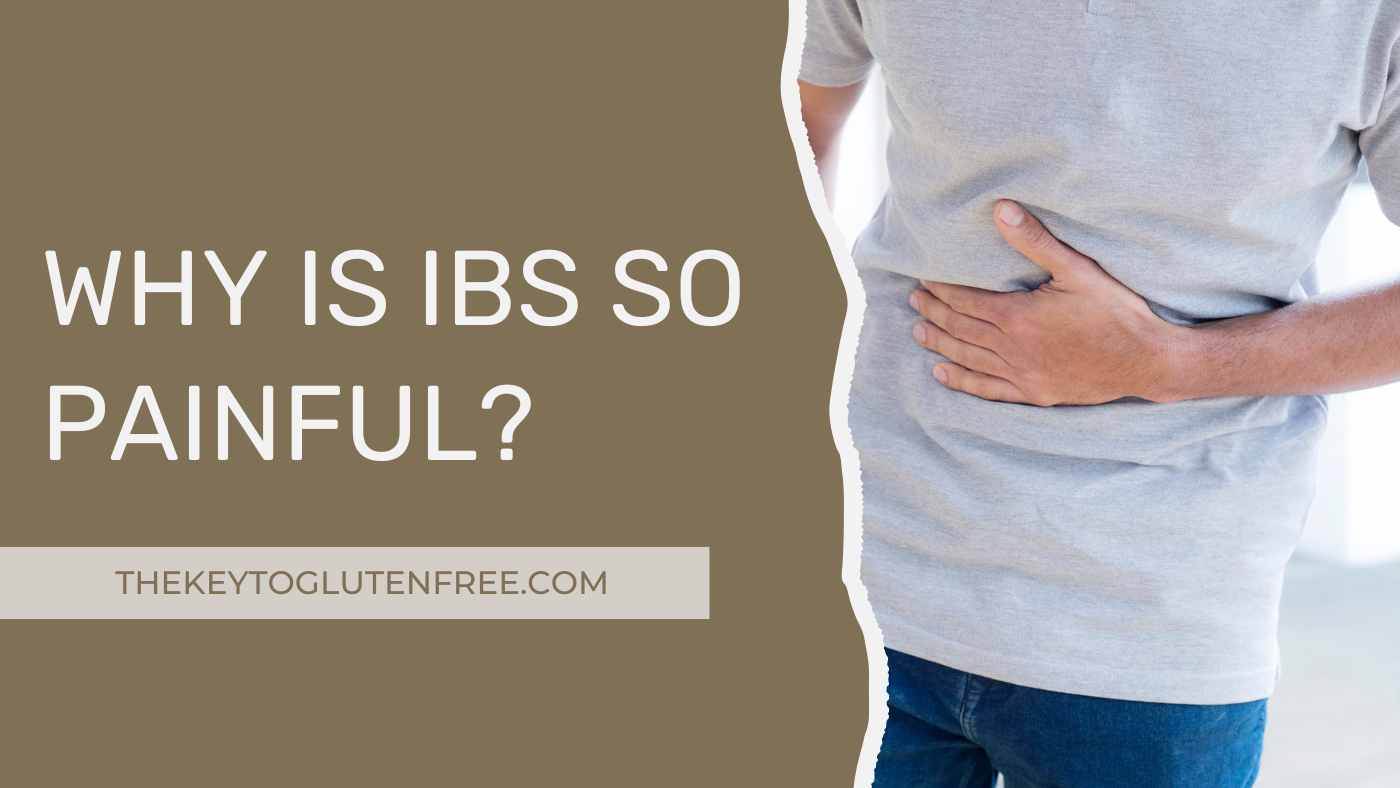
IBS can ignite fiery abdominal pain that doubles you over. But what causes this gut turmoil?
The reasons are complex, but science provides clues – inflammation, intestinal spasms, gastrointestinal (GI) disturbances, and more [1].
Anxiety and triggers disrupt normal bowel habits and stool patterns. Though frustratingly mysterious, knowledge is power and you can keep your irritable bowel syndrome under control.
Continue reading to discover proven ways to calm the IBS storm within your gut. Take back control and find relief today by finding out – why is IBS so painful?
Struggling with IBS pain? Discover the best supplements for IBS right here at thekeytoglutenfree.com!
Unraveling the IBS Puzzle: Understanding the Pain
Ah, the notorious pain of IBS. It’s like a cranky toddler throwing a tantrum in your gut, refusing to give you a moment’s peace.
Discomfort like this often camps out in your abdomen, causing twists, turns, and a whole lot of commotion. But what gives?
So, Why Does IBS Hurt So Much?
It’s all about miscommunication – your gut-brain connection isn’t playing nice. Normally, your intestines contract in an organized rhythm to push food along.
With IBS, these contractions can go haywire. Hyperactive contractions lead to cramps, and slow ones result in bloating.
Imagine a tug of war between your intestines – that’s the chaos behind the pain.
The Pain Trigger Tango: What Sets IBS Off?
Ever wondered what turns up the volume on your IBS discomfort? – let’s dance through the triggers that can make your gut throw a tantrum.
What’s the Culprit Behind IBS?
Dietary Delights: Certain foods can be like a mischievous orchestra conductor, guiding your gut into a symphony of distress. Spicy, fatty, or dairy-rich foods, meet your IBS triggers. And let’s not forget artificial sweeteners – they’re like the divas of the digestive world, stirring up chaos.
Stress Sneak Attack: Stress, oh stress! You sly devil. Your tense vibes can coax your gut into a rebellious dance. High-stress situations can kick IBS symptoms into overdrive, leaving you with a painful encore.
Bad Bacteria Boogie: Intestinal bacteria can be both friend and foe. For those with IBS, the balance tips toward the latter. Bacteria producing excess gas and inflammation? Say hello to another round of pain.
The Never-Ending Quest: Managing IBS Pain
Alright, let’s tackle the big question: “How on Earth can I manage this relentless IBS pain?”
Can I Wave Goodbye to IBS Pain?
Food for Thought: Keep a food diary to spot your personal pain provocateurs. Some foods may trigger IBS symptoms more than others. Your digestive system might be sensitive to certain ingredients – a food detective’s work is never done!
Chill Out: Stress might be the DJ behind the gut disco, but you can switch up the playlist. Embrace relaxation techniques like deep breathing, meditation, or yoga. Your gut will thank you for the smooth tunes.
Doctor’s Orders: Don’t hesitate to seek medical advice. Your healthcare provider can help you navigate this maze of pain and discomfort. They’re the experts in decoding your gut’s cryptic messages.
Riding the Roller Coaster: How IBS Pain Gets Worse
Hold on tight, because with IBS, the ride can get bumpier. The pain’s not always the same – it can be a bit of a shape-shifter.
Is IBS Pain on a Joyride?
The “Oh No, Not Again” Phase: IBS tends to follow a pattern. It might come and go, leaving you in a seemingly endless loop of discomfort. The roller coaster analogy isn’t far off – ups, downs, and twists await.
The “Wait, Why’s it Worse Now?” Phase: Stress, dietary choices, and even hormonal changes (thanks, menstrual cycle!) can amp up the pain. So, don’t be surprised if some days feel like a wild ride and others are a smoother cruise.
The Mystery of IBS Pain Location: Where Does It Hurt?
So, you’ve got this uncomfortable sensation gnawing at your gut, but where exactly is the pain setting up camp?
Let’s play detective and uncover the truth about IBS pain’s favorite hideouts.
Where’s the Pain Party At?
The Lowdown on IBS: The pain from IBS is like a traveler with a wandering spirit – it doesn’t stick to one spot. It’s known to roam around your abdomen, causing discomfort in various regions.
Pain from IBS can often be felt in the lower abdomen, but don’t be surprised if it decides to venture elsewhere.
The IBS Specials: Some people with IBS report pain that’s more focused on specific areas. The upper abdomen, for instance, might host a pain party if your stomach is acting up. Meanwhile, the lower left side might become a hotspot if your colon is doing its own rebellious dance.
The Mysterious Migration: IBS pain may be elusive, playing peekaboo from time to time. It might be sharp and stabbing one moment, and a dull ache the next. This unpredictable behavior can keep you guessing – like a fickle friend who can’t make up their mind about where to hang out.
IBS and Sensitivity to Pain: What’s the Deal?
IBS isn’t just about physical discomfort – it’s like your gut has turned into a pain-sensitive diva.
Let’s uncover the reason behind this heightened sensitivity to pain.
Why So Sensitive, IBS?
The Nerve of IBS: Your intestines are home to a complex network of nerves, and with IBS, they’re like the stage managers of a high-strung theater production. Even the slightest disturbance can make them go haywire, amplifying the pain signals.
The Hypersensitivity Puzzle: Imagine your nerves as musicians in an orchestra. In IBS, they tend to play the pain notes a tad too loudly. A simple sensation that would normally go unnoticed suddenly becomes an all-out concert of discomfort.
The Vicious Cycle: The more pain you experience, the more sensitive your gut can become to pain signals. It’s like your nerves are on high alert, ready to send an SOS at the slightest provocation. This hypersensitivity can turn everyday sensations into pain triggers.
As you navigate the intricacies of IBS, remember that understanding the locations and sensitivities involved can help you better manage and alleviate the discomfort.
Impact Your IBS, Don’t Let It Impact You: Lifestyle Changes for Relief
IBS might be a pain in the gut, but that doesn’t mean you can’t take charge and make a positive impact.
Embracing some lifestyle changes can go a long way in taming the fiery dragon of IBS discomfort.
Can You Really Make a Difference?
Ditch the Stress: Remember that your gut and brain are best friends, and stress is like an unwelcome third wheel. Engage in stress-reducing activities like yoga, meditation, or simply spending quality time with loved ones. Your gut and mind will thank you for the harmony.
Food Allies: The saying “you are what you eat” takes on a whole new meaning with IBS. Keep a food journal to identify trigger foods that exacerbate your symptoms. Consider introducing a diet that’s kinder to your gut, such as the Low FODMAP diet, which focuses on minimizing certain fermentable carbohydrates.
Regular Routines: Your gut loves predictability, so establish a consistent eating and sleeping schedule. Eating at the same times each day can help regulate your digestion and prevent sudden flare-ups of discomfort.
Hydration Nation: Water is your gut’s best friend. Staying hydrated can help maintain healthy bowel movements and ease constipation or diarrhea – two notorious troublemakers in the IBS world.
Seeking Relief: When to See a Healthcare Provider
You’re on this journey to conquer IBS, but sometimes, you need a guide. That’s where your trusty healthcare provider comes in.
So, when is it time to make that appointment to conquer your symptoms of IBS?
Is It Time for Some Expert Advice?
Persistent Pain: If your IBS is persistent and impacting your quality of life, it’s time to reach out for professional help. Your healthcare provider can assess your symptoms, provide a proper diagnosis, and guide you toward effective management strategies.
Change in Symptoms: If your IBS symptoms suddenly change or worsen, it’s a red flag that warrants a healthcare visit. New or unusual symptoms might indicate something beyond IBS, and your provider can help determine the next steps.
Rule Out Other Conditions: While you might be certain it’s IBS causing the discomfort, there are other conditions with similar symptoms, such as inflammatory bowel disease (IBD) and celiac disease.
Your healthcare provider can perform tests to rule out other possibilities and ensure you’re on the right path.
Remember, your healthcare provider is your partner in this journey. They’re there to listen, diagnose, and offer the best strategies for managing your IBS.
Don’t hesitate to seek their expertise – they’re your ally in the quest for relief.
Final Thoughts: Taking the Reins on IBS
So, there you have it – the ins and outs of why IBS can feel like an unpredictable roller coaster. From its mysterious origins to its impact on your daily life, IBS is no small foe.
But armed with knowledge, lifestyle changes, and the support of healthcare professionals, including gastroenterologists, you can turn the tables and manage pain once and for all.
Take charge of your gut health, make informed decisions, and don’t let IBS hold you back from living your life to the fullest.
Disclaimer: This content is based on my personal experience as an individual diagnosed with celiac disease and IBS (Irritable Bowel Syndrome) who follows a strict gluten-free diet. This does not constitute medical advice. Please consult a medical professional, nutritionist, or qualified dietitian for personalized, professional advice.



